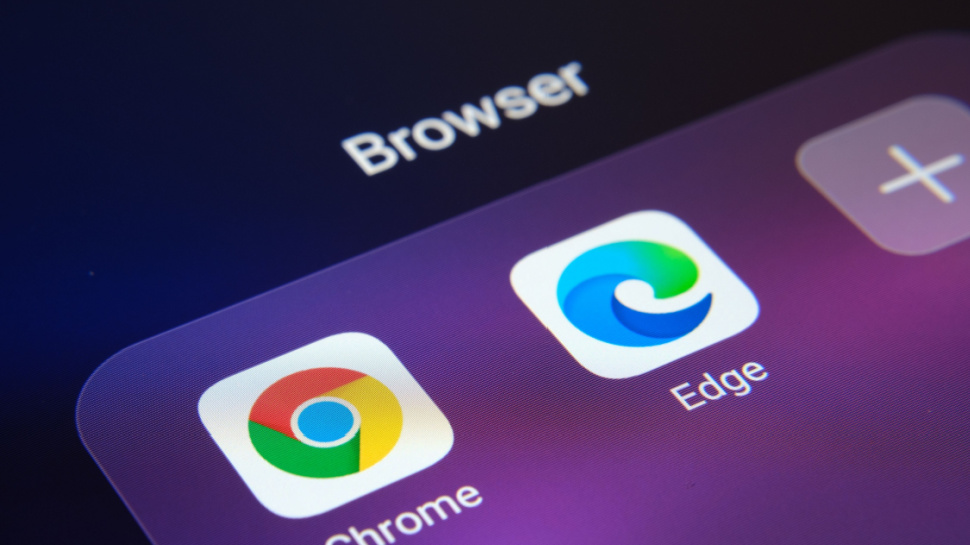Microsoft’s new RAM-limiting feature for Edge in Windows 11 could make me drop Google Chrome for good
Microsoft is making Edge less of a RAM hog

Microsoft is testing a new way to limit the amount of RAM its Edge web browser uses – and it could sway people from the market leader Google Chrome.
As websites get more complex (and stuffed with adverts), they use more system memory on your desktop PC or laptop. If you often browse with lots of tabs open at once, and have a few browser extensions installed, the amount of RAM used by your web browser can quickly balloon – and this can result in your PC slowing down, and your laptop battery depleting faster.
Chrome is a notorious RAM hog – though Google has been adding features to address that – so Microsoft clearly sees an opportunity to get more users to switch to Edge. Despite Edge using the same Chromium technology as Chrome, and having the advantage of being installed in Windows 10 and Windows 11 by default, Microsoft’s web browser has struggled to chip away at Chrome’s formidable market share.
So, any advantage Edge can offer over Chrome will be very welcome. While Edge already gives users a way to manage RAM use, as Windows Latest reports a new ‘Canary’ build – which is an early version released to testers – has tweaked the way users can set RAM limits.
Rather than the current slider, there is a drop-down menu that offers the following choices:
- No limit
- Minimal (8GB)
- Moderate (6GB)
- Aggressive (4GB)
- Most Aggressive (2GB)
User friendly FTW
While this new drop-down list doesn’t give you the same level of granular control that the current slider does, it’s a more convenient and user-friendly way to impose limits on the browser, especially for people who might not be sure how much memory they should give Edge.
One thing to note is that Microsoft isn’t kidding when it labels the 2GB limit as “Most Aggressive.” While this mode will be handy if you’re using an older machine with not much RAM to spare, I’d advise against picking it if you have a modern PC with 8GB or 16GB of RAM, as the 2GB limit will decrease the amount of tabs you have open at once, and could impact browsing performance.
Sign up for breaking news, reviews, opinion, top tech deals, and more.
Limiting Edge to 4GB or 6GB should see good results, and may free up your PC’s memory for other applications to use, improving their performance.
Being able to set the limit to only turn on when playing PC games is a nice touch as well. It won’t transform your gaming experience, but could make things smoother. Windows Latest also claims that Microsoft is looking into ways to integrate Edge with Windows 11’s Energy Saver tool.
I’ve been stubbornly refusing to use Edge for years, but adding features like this could make me finally ditch Chrome. I often browse with loads of tabs open at once, and while most of the time I use desktop PCs with plenty of RAM to spare, I’m still not a fan of just how much memory Chrome continues to suck up. Plus, when I switch from my gaming PC with 32GB of DDR5 RAM to a work laptop with 8GB of slower RAM, my tab-happy browsing habits start causing problems.
If using Edge means my laptop performs better, and its battery lasts longer, then I might not just use the browser to download Chrome. I’m still not a fan of how Microsoft tries to force Edge on me when using Windows 11, but adding features that actually make my online life better will do more to convince me to switch web browsers than any heavy-handed nagging pop-ups will.
You might also like

Matt is TechRadar's Managing Editor for Core Tech, looking after computing and mobile technology. Having written for a number of publications such as PC Plus, PC Format, T3 and Linux Format, there's no aspect of technology that Matt isn't passionate about, especially computing and PC gaming. He’s personally reviewed and used most of the laptops in our best laptops guide - and since joining TechRadar in 2014, he's reviewed over 250 laptops and computing accessories personally.